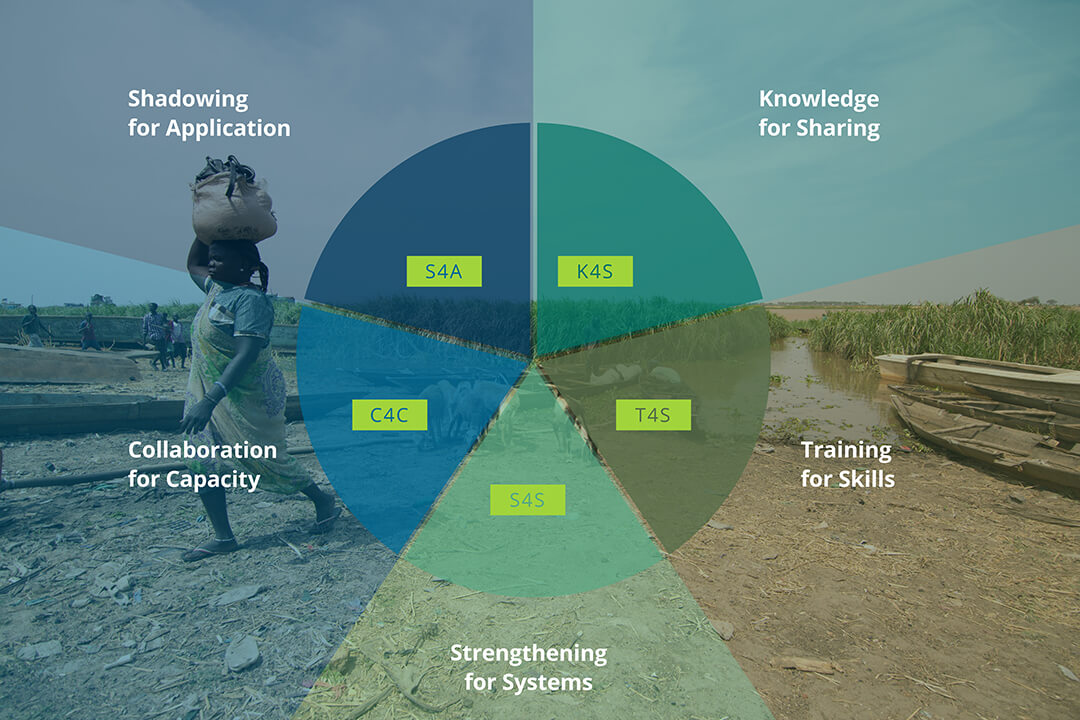Our Approach
Component One: Intensive Capacity Strengthening Training and Mentorship Support
Support under Component One of the project is organized around five areas.
Knowledge for sharing (K4S) will raise awareness of and promote effective practices related to the core management functions of humanitarian organizations. Activities under K4S will include webinars, articles, e-learning content and more. The primary target group will be organizations supported by LCS4R. Selected knowledge products will be made available to the broader humanitarian community in the targeted regions and globally through the project’s knowledge management platform. This platform will also promote LCS4R-supported organizations.
Training for skills (T4S) will provide an opportunity for senior representatives from the participating NNGOs to develop their skills in leadership, negotiations, collaboration/partnerships, strategic thinking and management of institutional systems during disaster/humanitarian response. The training program also provides participants with an opportunity for networking and experience-sharing.
Strengthening for systems (S4S) will provide intensive support to participating NNGOs to strengthen an entire organizational system, such as human resources or monitoring and evaluation. In coordination with each NNGO, LCS4R will identify the area of assistance in line with the findings of the Organizational Capacity Assessment and the capacity-strengthening plans developed by the organization. A subject-matter expert will be assigned to each NNGO to provide intensive support in person and virtually to strengthen an organizational system. The SMEs will work with each NNGO over an extended period (between six and 12 months).
Collaboration for capacity (C4C) will provide employees from participating NNGOs with the opportunity to work with SMEs to develop practical knowledge resources. The target group for these activities is designated staff responsible for institutional processes. Through a series of webinars and other virtual activities, and in collaboration with the designated employees from the NNGOs, LSC4R’s SMEs will develop tools, templates, manuals, guidance notes and other knowledge products. These knowledge products will help strengthen the capacities of the NNGOs at the sub-system level (e.g., by providing a job aid for closing a financial account after the delivery of humanitarian assistance). The primary focus of the developed knowledge products will be related to scaling up/adjusting institutional capacities during disaster response (e.g., checklists for recruiting volunteers to assist with disaster response). Also in collaboration with selected NNGOs, the LCS4R team will pinpoint the sub-systems/areas of focus based on the findings of the Organizational Capacity Assessments and capacity-strengthening plans. C4C also will provide peer sharing among the participants across all participating NNGOs.
Shadowing for application (S4A) will provide an opportunity for NNGO representatives responsible for managing institutional systems to gain hands-on experience by observing the work of their counterparts at Concern and International Medical Corps country offices. During these short-term (approximately one-week) placements, NNGO staff will also conduct on-the-job assignments and specific tasks. Selected staff may participate in more than one shadowing experience, depending on need and interest.
